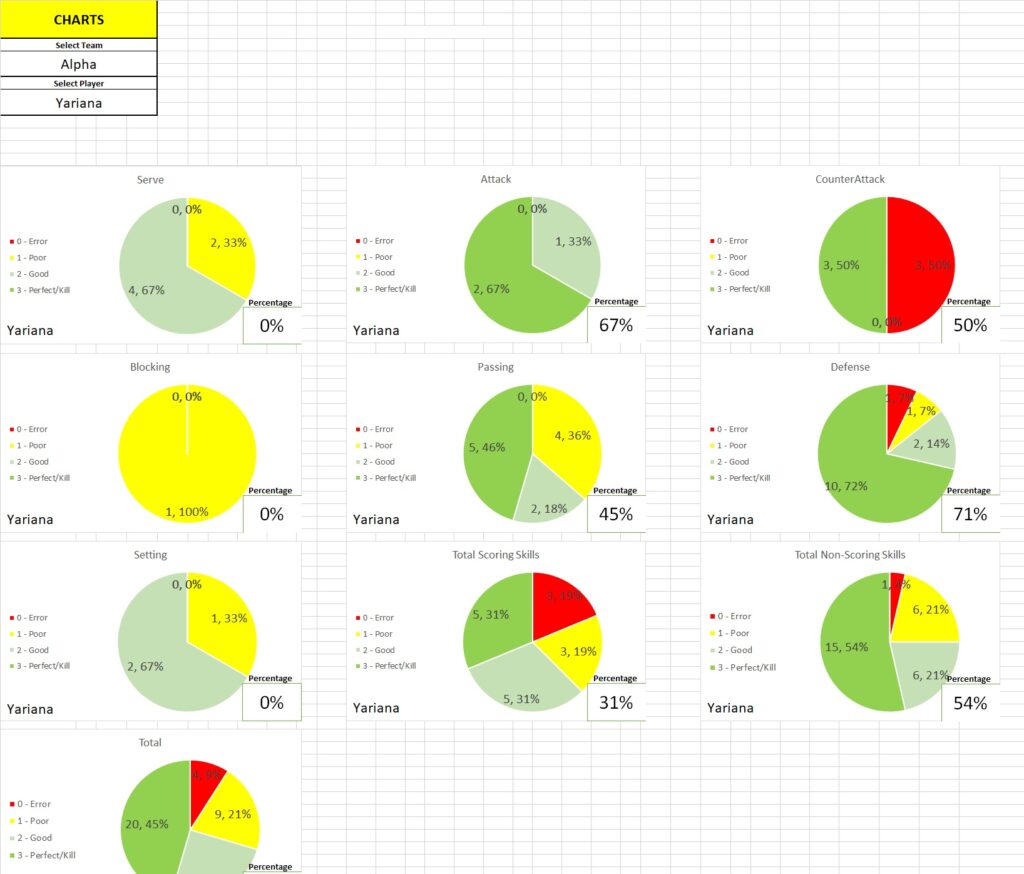In sports science, we often hear that everything should be measured—speed, strength, body fat, test scores. But here’s the truth: not every test helps coaches or athletes. Early in my career, I saw data being collected just because “that’s how it’s always been done,” with little thought about how it actually shaped training.
Over time, I developed a different philosophy: measure only what adds real value. If a test doesn’t guide decisions, improve planning, or help athletes perform, I skip it. For example, in volleyball, knowing someone’s exact body fat or VO₂ max doesn’t change how I coach. So why waste time on it?
Instead, I focus on three categories of tests that make a difference:
1. Sport Performance Assessments
I track skills that directly affect competition. For instance, in volleyball I measure mostly: serve, pass, set, attack, block, and defense. Most of this happens during practice or matches, where the data is most realistic. I film sessions, review clips later, and share stats with players. The goal: measure performance in the same environment it’s meant to improve.

2. Physical Health Checks
Injuries are every coach’s nightmare, so I prioritize tools that flag risk early. That includes jump tests, medicine ball throws, and simple wellness check-ins (muscle soreness, joint discomfort, session RPE). These take minutes, not hours, and give powerful insights into recovery and readiness.

3. Muscle Function Tests
In the gym, I use simple strength metrics like Reps in Reserve (RIR) and estimated 1-rep max. They tell me how athletes are progressing without disrupting training. Even better, I compare this data with on-court results—because strength gains mean little if they don’t translate into better jumps, throws, or overall performance.

My Guiding Principle
Testing should never replace training—it should enhance it. I weave assessments into everyday practice so athletes often don’t even realize they’re being tested. This way, I collect useful, context-rich data without sacrificing valuable time on the court.
If you’re a coach, my advice is simple: don’t test for tradition’s sake. Test what matters, test with purpose, and let the results actually guide your coaching.
👉 By the way, if you’re a volleyball coach looking for a quick way to track skills, I’ve built a spreadsheet that makes it easy. Check it out here!
